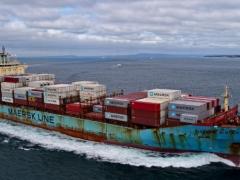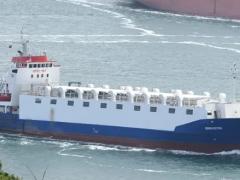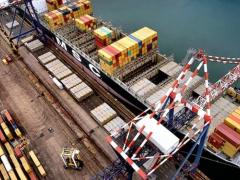The pre-advice system for export container movement into the Pier 1 and Pier 2 terminals at Durban harbour has been welcomed for its added efficiency and cost saving. But, if the whole process isn’t carefully thought out beforehand by all the parties involved, then it’s a disaster waiting to happen, according to one shipping expert. In concept, it’s a simple system. Once an export container is loaded, then the pre-advice – the booking reference, container number, weight and seal number – must be fed into the Transnet Port Terminals’ (TPT) terminal management programme, Navis. Then, when the truck delivering the container arrives at the container terminal gates, the container it is carrying is checked against the Navis pre-advice – and, if all the numbers match, the truck can be cleared for movement to the appropriate export stack. “For the terminal to have this information prior to the container arriving, and knowing which export stack it’s bound for in advance, is so much more efficient,” said Dave Watts, maritime adviser to the SA Association of Freight Forwarders (Saaff). “If they (TPT) are properly preadvised, the trucks should be going straight through.” It’s very simple – in theory. But, in practice things get disturbingly more complicated. First of all, the originators of the pre-advice information – that booking reference etc – are the exporter (if he packs his own containers) or the independent packing house. It would seem logical that they should then enter the preadvice directly into Navis. But the complication here is that the legal liability for any error on this information is laid on the shipping line that will be carrying that container. Therefore, if the exporter/ packing house makes an error in the pre-advice, the blame would be laid directly on the line. One line discussed this very matter with TPT, and one of the executives for the line, who wishes to remain nameless, told FTW: “We believe that the packing stations should pre-advise containers. But, as matters stand, we do not agree that carrier lines must take responsibility with the preadvice. We do not have any relationship with the packing stations and cannot be held responsible for pre-advice information errors made by them.” He then added that they wanted to know what the legal implications of this nomination were. TPT’s feedback on this issue was: “We do not have a commercial relationship with packing stations and depots either. Customers or service providers in the supply chain must be managed by the line. The line can either pre-advise all their containers or make the necessary arrangement for their customers/supply chain to pre-advise on their behalf.” Which all boils down to the fact that shipping lines are going to have to get their individual pre-advice procedures all lined up and ready to go before the new system becomes mandatory on February 1 next year. So what are the lines going to do? MSC and Hamburg Süd told FTW that neither had any firm information to release at this moment. Both said that they were “busy formulating” their plans. Maersk Line was a bit more forthcoming. Communications manager Kerry Rodrigues released the following statement to FTW. “Maersk Line is currently engaging with TPT on the implementation process and the customer access portal. As soon as we have further information we will begin communicating and doing the necessary training with our customers to ensure all are aware of the process prior to the effective date.” Meantime, Safmarine’s dry export and capacity manager, Janine Nankin, said: “If we can feed in information automatically from our system, it would save the customer from having to do that. “If not, it would have to be someone in the export chain (eg the packing house).” The next step seems to be for the lines to have their own indaba to decide on an answer, and for a follow-up meeting with the exporters, packing stations, agents and truckers, to find a universal solution.












